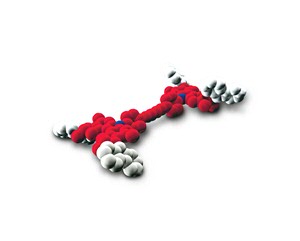Eighteen 'top programmes' in Higher Education Guide Masters

The latest edition of the Higher Education Guide for Master’s degree programmes has awarded the ‘Top Rated Programme’ predicate to 18 degree programmes taught at the University of Groningen. A remarkable increase from last year, when there were 9 in that category . For the fifth time in succession, the UG Master's programme in Nanoscience is among the top three best university Master's programmes in the Netherlands.
Challenging and well organized
‘In recent years, the UG has been receiving better assessments on average than the universities in the Randstad region in the west of the country,’ according to the Guide. ‘Students in Groningen evaluate their programmes as challenging and well organized slightly more often than students elsewhere.’ The University of Groningen comes second in the ranking of broad-based, traditional universities.
18 top programmes
The Guide includes descriptions of all officially registered Master's degree programmes in the Netherlands. Most of the programmes are also awarded points to express quality. Some programmes are so good that the editorial board awards them the predicate Top Rated Programme. These are programmes that scored 76 points or higher. The Top Rated Programme label was awarded to 142 Master's programmes throughout the country. Eighteen of the Master’s programmes taught at the University of Groningen were awarded this top accolade. These are:
- Applied Physics
- Artificial Intelligence
- Astronomy
- Behavioural and Cognitive Neurosciences (research)
- Econometrics Operations Research and Actuarial Studies
- Economics and Business (research)
- European Studies
- Human Movement Sciences
- International law and the law of international organizations (at UG the tracks International Human Rights Law track and Public International Law)
- Marketing
- Legal studies (research)
- Mathematics
- Medical Pharmaceutical Sciences
- Nanoscience
- Philosophy (research)
- Population Studies
- Linguistics (research)
- Theology and Religious studies (research).
In addition to the top Master’s programmes, another 9 UG Master's programmes came first in their category. These are Teacher Training Languages, Archaeology, Archaeology (research), Economics, Clinical and Psychosocial Epidemiology (research), Pharmacy, Supply Chain Management, Spatial Sciences (research), Dentistry.
All the Master's programmes will be providing detailed information on various days during the Master's Week from 20-24 March.
Nanoscience
According to the Higher Education Guide for Master’s degree programmes, Nanoscience has topped the table as the best university Master’s degree programme in the Netherlands every year since 2013. Scientists in the field of Nanoscience study molecules on the smallest possible scale. Ben Feringa designed the nanocar, for example, a molecular motor driven by light, for which he won the Nobel Prize for chemistry in December 2016.
The Higher Education Guide for Master’s degree programmes gives a brief description of all Dutch Master's programmes on offer. A quality assessment is also given for most programmes, based on student evaluations and the NVAO evaluation.
More information
- Gernant Deekens, university spokesman
- Guide to Master’s degree programmes 2017, published by the Centre for Higher Education Information (CHOI)
- Master's degree programmes at the University of Groningen
- Master's prgramme Nanoscience

| Last modified: | 14 April 2020 11.28 a.m. |
More news
-
03 April 2025
IMChip and MimeCure in top 10 of the national Academic Startup Competition
Prof. Tamalika Banerjee’s startup IMChip and Prof. Erik Frijlink and Dr. Luke van der Koog’s startup MimeCure have made it into the top 10 of the national Academic Startup Competition.
-
01 April 2025
NSC’s electoral reform plan may have unwanted consequences
The new voting system, proposed by minister Uitermark, could jeopardize the fundamental principle of proportional representation, says Davide Grossi, Professor of Collective Decision Making and Computation at the University of Groningen
-
01 April 2025
'Diversity leads to better science'
In addition to her biological research on ageing, Hannah Dugdale also studies disparities relating to diversity in science. Thanks to the latter, she is one of the two 2024 laureates of the Athena Award, an NWO prize for successful and inspiring...
